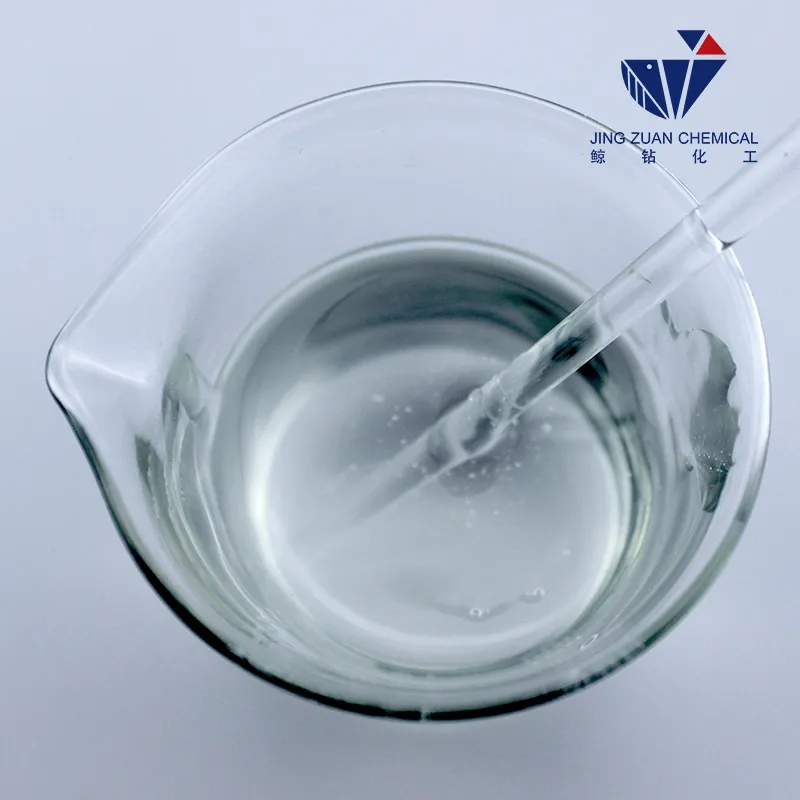
Nov . 17, 2024 11:30 Back to list
what is hydroxyethyl cellulose used for
Hydroxyethyl cellulose (HEC) is a water-soluble polymer derived from cellulose, a natural polysaccharide obtained from plant cell walls. This versatile compound has gained significant attention across various industries due to its unique properties and wide range of applications. In this article, we will explore what hydroxyethyl cellulose is used for and the critical roles it plays across different sectors.
One of the most notable uses of hydroxyethyl cellulose is in the field of construction and building materials. HEC is commonly incorporated into cement and plaster mixtures as a thickening agent and stabilizer. It improves the workability of these materials, allowing for better adhesion and easier application. Additionally, HEC enhances water retention in dry mixes, which is particularly beneficial in preventing the premature drying of cement during construction. This feature contributes to the strength and durability of the finished product, making HEC an essential additive in modern construction practices.
In the personal care and cosmetic industry, hydroxyethyl cellulose serves as an essential ingredient in many formulations, including shampoos, conditioners, lotions, and creams. Its thickening and emulsifying properties help create smooth and stable products, enhancing texture and consistency. HEC also acts as a film-forming agent, providing a desirable feel to the skin or hair. Moreover, hydroxyethyl cellulose is often used in gel formulations, where it contributes to the product's viscosity and stability, making it a popular choice for products that require a specific texture or delivery system.
The pharmaceutical sector also benefits significantly from hydroxyethyl cellulose. It serves as an excipient in various drug formulations, helping to control the release of active pharmaceutical ingredients (APIs). By modifying the viscosity and flow characteristics of the formulation, HEC aids in achieving a desired pharmacokinetic profile, which can be crucial for drug efficacy. Additionally, HEC is utilized in ophthalmic solutions, where its ability to retain moisture and enhance viscosity is vital for improving lubrication and comfort for patients using eye drops or gels.
what is hydroxyethyl cellulose used for

In food processing, hydroxyethyl cellulose is used as a thickening agent and stabilizer in various products, including sauces, dressings, and dairy items
. It helps maintain texture, prevents separation, and improves shelf life by enhancing the overall stability of the food product. Moreover, HEC can improve mouthfeel, making food items more appealing to consumers.In the realm of agriculture, hydroxyethyl cellulose is used in formulating agrochemicals and fertilizers. It aids in the controlled release of nutrients and improves the adhesion of sprays to plant surfaces, thereby enhancing the effectiveness of pesticides and herbicides. HEC’s water retention properties also contribute to soil conditioning, helping to maintain moisture levels and improve plant growth.
Furthermore, hydroxyethyl cellulose is gaining popularity in the realm of 3D printing and hydrogel technology. Its biocompatibility and ability to form hydrogels make it an attractive candidate for creating scaffolding materials in tissue engineering and drug delivery systems.
To summarize, hydroxyethyl cellulose is a multifunctional polymer with diverse applications across various industries. Its ability to act as a thickening agent, stabilizer, and emulsifier makes it indispensable in construction, personal care, pharmaceuticals, food processing, agriculture, and innovative technologies. As research continues to explore its potential, hydroxyethyl cellulose is likely to play an even more vital role in these fields, further enhancing the performance and quality of products that rely on this remarkable compound.
-
Versatile Hpmc Uses in Different Industries
NewsJun.19,2025
-
Redispersible Powder's Role in Enhancing Durability of Construction Products
NewsJun.19,2025
-
Hydroxyethyl Cellulose Applications Driving Green Industrial Processes
NewsJun.19,2025
-
Exploring Different Redispersible Polymer Powder
NewsJun.19,2025
-
Choosing the Right Mortar Bonding Agent
NewsJun.19,2025
-
Applications and Significance of China Hpmc in Modern Industries
NewsJun.19,2025







